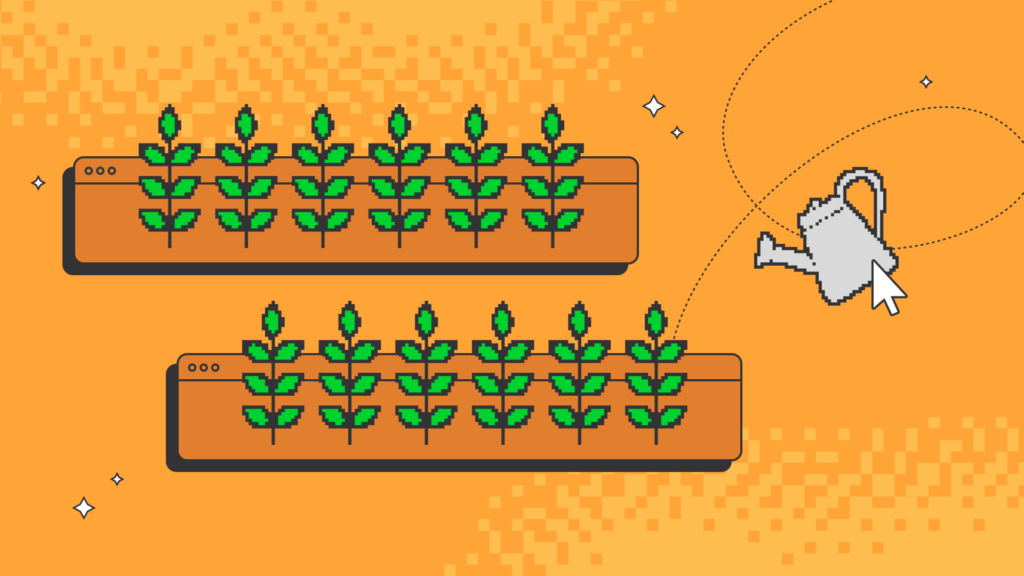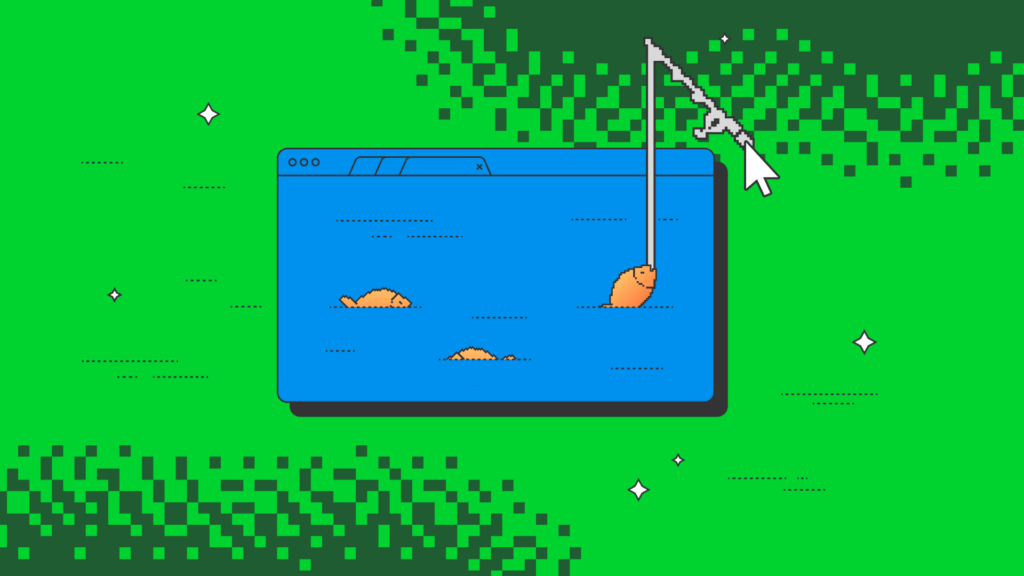
This essay was originally published on The Sidebar, Mozilla’s Substack.
There’s a moment Wiandi Vreeswijk knows well. After tending virtual crops in “Stardew Valley” and chatting with other players on Discord, he types: “I can’t anymore. I have to go lay in bed.” It’s the fatigue from long COVID setting in — and almost always, the replies roll in: “Oh yeah, me too.”
Cozy games like “Stardew Valley,” where players complete simple-yet-satisfying tasks like running a farm, have become a safe space for Wiandi.
A video game developer in the Netherlands, Wiandi led an active lifestyle until he got COVID-19 in 2023. He’s had long COVID since then, which makes it difficult for him to go out with friends and family, or to play some of the more intense video games he once enjoyed. That shift led him to explore a different kind of play, one that emphasizes comfort and connection.
For players like Wiandi who are seeking a slower-paced environment, cozy games offer an easy and welcoming entry point. The genre has seen a 57% increase in online mentions in just one year, as more people seek out calm and connection online.
A space to gather
Wiandi recently started a community on the gaming platform Steam where players with chronic conditions can congregate. Since then, he’s set up a public “Stardew Valley” server where people can drop into a shared game, “farm” and chat as they please. The group currently has 56 members, while a corresponding Discord chat has hundreds of participants.
“It’s been bigger than I expected,” says Wiandi, who initially started with a Dutch community before expanding internationally. “I noticed that a lot of people wanted to join.”
For Wiandi, the best part of building this online community is connecting with others who can relate to what he’s going through. The virtual world allows him to meet people he otherwise wouldn’t have. He can simply fire off a message on Discord.

Bonding over shared comfort
Laura Dale, an accessibility consultant for video games and the author of “Uncomfortable Labels: My Life as a Gay Autistic Trans Woman,” often plays cozy games to connect with her neurodivergent friends. She says they’ll regularly chat online while building towns in “Animal Crossing” on their respective Nintendo Switches, a group activity that began during COVID lockdowns but is still going strong.
As someone who sometimes finds social chatter challenging, especially when there’s no obvious topic to discuss (like a video game), playing cozy games gave Laura a relaxing way to maintain and build her relationships.
“I found a lot of solace in playing ‘Animal Crossing’ with friends online,” Laura says. “Having this shared activity gave us a safe topic of conversation.”
Each person doesn’t even need to be playing the same game, as long as they share the same cozy vibe.
“We’re all doing different cozy game activities, but we’re doing them together,” Laura adds.
The appeal of low-pressure play
From “Tetris” to “Elden Ring,” there’s a video game out there for everyone. So what is it about cozy games that attracts players like Laura and Wiandi?
For Wiandi, the answer is obvious: Cozy games have a low barrier to entry.
“Even my mom could learn it in like a day,” he says of “Stardew Valley.” “That’s the charm of a cozy game. When you start, even if you have no experience, you don’t feel overwhelmed by any of the mechanics or the visuals. Everything has to be super easy and minimal — the user experience, the music, the sound effects, even the gameplay.”
Many of the defining characteristics of cozy games, like their leisurely pace, mean they’re more accessible to a wider range of gamers. There’s less pressure to press buttons quickly or get the timing of an attack perfectly right. Titles like “Stardew Valley” and “Animal Crossing” also offer a fixed top-down camera angle, which makes them a better option for some gamers who experience motion sickness, compared to the disorienting camera movement of a first-person shooter. In general, cozy games are also less likely to feature the kind of visual overstimulation that’s common in other genres and can be an issue for players with epilepsy or autism.
For some players with conditions that affect memory or focus, like ADHD, these games are also designed to quickly remind you what task you were in the middle of during your last session. In “Animal Crossing,” for example, there’s almost always a non-player character nearby ready to explain (or re-explain) what you need to do next if you need it.
“All of these things lend themselves to a wide range of neurodiverse players being able to more safely assume that a cozy game is going to be accessible in a way that you can’t assume as easily with other genres,” Laura says.
Accessibility beyond cozy labels
Cozy games aren’t a perfect fit for every type of disability — there’s no one-size-fits-all solution for such a wide and disparate community.
For Grant Stoner, a games journalist who primarily covers physical accessibility in the industry, cozy games aren’t necessarily more or less accessible than any other genre. Stoner was diagnosed with Spinal Muscular Atrophy type II at 13 months old, and his muscles have weakened over time as a result; he relies on customizable settings and hardware to play most games. There are still some limitations to the types of games he can play, however, including some titles that fall under the cozy genre.
“Depending on what your disability is, cozy games can be either very overwhelming or very secure safe spaces,” Grant says.
He adds that one of the benefits of a cozy game is the “routines that keep people grounded.” He played an earlier version of “Animal Crossing” for the Nintendo DS handheld, but found that some of the tasks in the latest iteration, for the Nintendo Switch, were too exhausting for him. And anyway, it’s not his video game genre of choice.
“I don’t really like cozy games,” Stoner says. “Not that I think there’s anything wrong with them, it’s just not my genre.” He prefers “intense action games” but still sees the value of titles like “Stardew Valley.” “They have a purpose in the industry.”
Making room for more players
Laura praises the cozy game genre for the many ways it caters to neurodivergent players, but she also recognizes that there’s plenty of room for improvement. One easy fix is in the way these games direct your attention. For plenty of video games, audio cues are a crucial way to convey information, but Laura often plays with the sound off to avoid overstimulation. She’s noticed that some titles are starting to use other methods to achieve the same result.
“I appreciate when cozy games offer visual flashes on screen to communicate information you otherwise need to hear,” Laura says. “Little details like that aren’t always designed for autistic players, but can still be useful.”
For Grant, the most important thing is that the video game industry doesn’t try to shoehorn certain players into a specific type of game or focus its accessibility efforts on just one genre.
“The disabled experience is so individualistic and so vast,” he says. “It’s not fair to the disabled community to say definitively that one [genre] is more accessible than the other.”
As a video game developer himself, Wiandi has plenty of opinions on how to make cozy games better. But for now, he’s just happy to have this new community.
The small “Stardew Valley” server Wiandi built continues to show how simple interactions in calm digital spaces can create genuine bonds. Players come and go as they please, planting virtual seeds, raising pixelated animals and sharing small triumphs in a chat filled with mutual understanding.
For Wiandi, the ability to play a game like “Stardew Valley” with other people who are experiencing something similar to him has been empowering.
“It makes me feel good,” he says. “It’s awesome.”

Download Firefox
Take control of your internet
The post Cozy games: A slower pace, and a place to belong appeared first on The Mozilla Blog.
Original article written by Jacob Kleinman >


